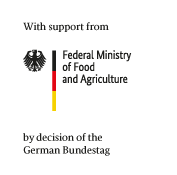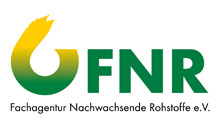PaludiZentrale

Background
The "PaludiZentrale" (2023-2033) coordinates and supports five pilot and demonstration projects on peatland protection and paludiculture (funded by the Federal Ministry of Food and Agriculture) as an overarching joint project. The establishment of the "PaludiNetz" will enable an exchange of information and networking with four ongoing pilot projects on peat soil protection (funded by the Federal Ministry of the Environment). The joint project is being carried out by the University of Greifswald, the Michael Succow Foundation (both partners in the Greifswald Mire Centre) and the Thünen Institute.
The aims of the project are
- Comprehensive monitoring, advice and support (development of the Paludi network)
- Ensuring uniformity and comparability of the data collected
- Comprehensive evaluation of the monitoring of long-term economic and ecological effects, including the climate impacts of land use types
- Identifying obstacles and developing recommendations for framework conditions for economically viable paludiculture and regional value chains in Germany
- Development of recommendations for action; targeted, timely transfer of knowledge from science to practice and society.
Tasks of the Working Group of Landscape Economics
The practical implementation of paludiculture will be promoted by sharing experiences and providing tailored advice. For this purpose, two working groups (WG) "Planning & Approval" and "Agriculture" are organized in WP 6, covering all steps from rewetting, site establishment and management to harvesting and logistics. For a standardized description of the different paludiculture production methods and the monitoring of stand establishment, development and yields, the methods and processes for data collection, recording and quality control are harmonized. The cross-network synthesis serves to derive reference procedures and recommendations for the implementation of different paludicultures.
As part of the "Utilization and Marketing" working group (WP 7), networking is taking place to use biomass from rewetted peatlands as a raw material, particularly for building materials, paper and fibres, substrates, biochar and energy production. The aim is to take a co-ordinated approach to the industries concerned and to create access to the markets. The recording of raw material properties is harmonized, data is collected centrally, raw material and material exchange is organized and joint tests are carried out for the various industries. Results on raw material properties and requirements from the industry are collected and communicated in both directions (raw material producers and customers). The biomass utilisation initiatives in the Paludi network are supported by coordinated material exchange and analyses, targeted marketing and the development of a "Paludi" brand.
The "Economics" working group (WP 8) is responsible for coordinating and harmonizing the accompanying economic studies. The aim is to collect all process-relevant costs which, in addition to the project-specific economic evaluation, can also be used for the overarching synthesis and development of initial standard costs (planning and calculation costs) for paludiculture processes in the databases of the Kuratorium für Technik und Bauwesen in der Landwirtschaft e.V. (KTBL). As part of the synthesis, comparative analyses of the initial economic situation, the conversion costs and the specific process costs, dealing with uncertainties (yield loss, biomass quality, market access) and a corresponding risk assessment are carried out. In addition, questions of revenue generation (e.g. willingness to pay), the remuneration of ecological services (surcharge marketing) and the design of agricultural subsidies are addressed in order to evaluate the economic viability of paludicultures under changing framework conditions (markets, agricultural policy, regulatory law).
In close cooperation with the Thünen Institute of Rural Studies, the work package "Socioeconomics" (WP 9) coordinates, harmonizes and evaluates socioeconomic studies in the individual peatland regions. Systematic evaluation of qualitative data will be used to identify generalisable factors of acceptance and rejection of a transformation to paludiculture (various stakeholders). Standardised surveys will be used to identify preference structures of farmers. The aim is to derive recommendations for the federal level on how the acceptance of rewetting and paludiculture can be promoted.
PaludiZentrale
Central coordination of pilot and demonstration projects for peatland protection including the use of renewable raw materials from paludiculture
Funded by:
Federal Ministry of Food and Agriculture (BMEL), Agency for Renewable Resources (FNR), Funding Code: 2222MT009B
Duration:
01.10.2023 to 31.12.2032
Projectlead at the University of Greifswald:
PD. Dr. habil FranziskaTannenberger
Lead of the subproject (WP 6-9):
Management of the subproject (Coordination WP 6-9):
Work packages (WP) of the working group Landscape Economics:
- WP 6: Planning, establishment and plant production (Dr. Sandra Kleine, Bas Spanjers)
- WP 7: Utilization and marketing (Bas Spanjers, Anke Nordt)
- WP 8: Economics (Dr. Telse Vogel, Dr. Sabine Wichmann)
- WP 9: Socioeconomics (Dr. Regina Neudert)
Collaborating partners:
- University of Greifswald, Institute of Botany and Landscape Ecology
- Johann Heinrich von Thünen Institute, Federal research Institute for rurall areas, agriculture, forests and fisheries
- Michael Succow Foundation
Funded by:


